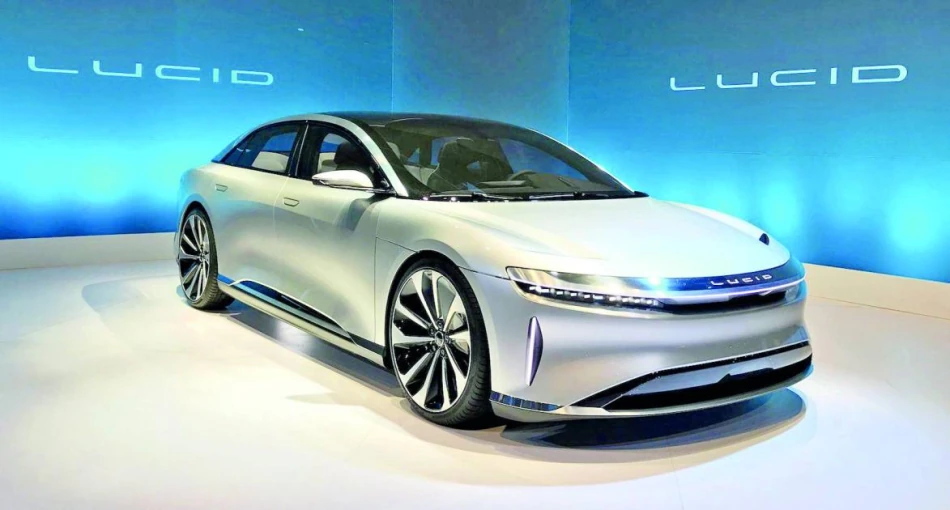
Lucid Motors Sees $978.4 Million Q3 Losses, Signals Challenges in EV Market Dominance
Lucid Group missed Wall Street expectations for the second straight quarter, as the electric vehicle maker continues struggling with production issues and the launch of its new Gravity SUV. The company cut its annual production target and reported wider losses than analysts expected, highlighting the challenges facing smaller EV manufacturers in an increasingly competitive market.
For the third quarter, Lucid reported an adjusted loss of $2.65 per share, much worse than the $2.27 loss analysts had predicted. Revenue came in at $336.6 million, falling short of the $379.1 million Wall Street expected.
The company's net loss for the quarter reached $978.4 million, or $3.31 per share. That's actually an improvement from the same period last year when losses hit $992.5 million, or $4.09 per share. But the adjusted loss per share still disappointed investors who were hoping to see progress.
Revenue did show some bright spots, jumping 68% compared to the same quarter last year when it was just $200 million. The company is clearly selling more vehicles, but not enough to meet market expectations.
**Production targets keep shrinking**
Lucid lowered its maximum annual production forecast to around 18,000 vehicles, down from a previous range of 18,000 to 20,000 units. The company originally aimed to produce 20,000 vehicles this year. These repeated cuts suggest ongoing manufacturing challenges that the company hasn't fully resolved.
The EV maker also reduced its minimum capital expenditure target by $100 million, now expecting to spend between $1 billion and $1.2 billion. This could signal either better cost management or delayed investment in production capacity.
Adjusted earnings before interest, taxes, depreciation and amortization showed a loss of $717.7 million, compared to an expected loss of $597.4 million. This metric worsened by 17% year-over-year, indicating the company is burning through more cash relative to its operations.
**Saudi backing provides lifeline**
Here's where things get interesting for Lucid's financial future. The company announced that Saudi Arabia's Public Investment Fund, its largest shareholder, agreed to increase credit facilities from $750 million to nearly $2 billion. This gives Lucid significant breathing room as it works through its production problems.
The company reported total liquidity of $5.5 billion at the end of the quarter, including the undrawn credit line. Cash and cash equivalents stayed roughly flat at $1.6 billion compared to the end of last year. Lucid says this funding should carry it through the first half of 2027.
**Tale of two EV companies**
Lucid's struggles stand in sharp contrast to rival Rivian Automotive, which reported better-than-expected third-quarter results just days earlier. Rivian's stock jumped after beating Wall Street forecasts, while Lucid continues to face skepticism from investors.
The difference shows how challenging it is for newer EV companies to scale production and meet market expectations. Rivian shares are up about 16% in 2025 after Wednesday's gains, while Lucid stock remains down more than 40% for the year, even accounting for a 1-to-10 reverse stock split this summer.
For investors and the broader EV market, Lucid's results highlight the growing divide between companies that can execute on production and those still working through manufacturing hurdles. With strong financial backing from Saudi Arabia, Lucid has time to fix its problems, but patience from public market investors may be wearing thin.
Most Viewed News

 Omar Rahman
Omar Rahman






